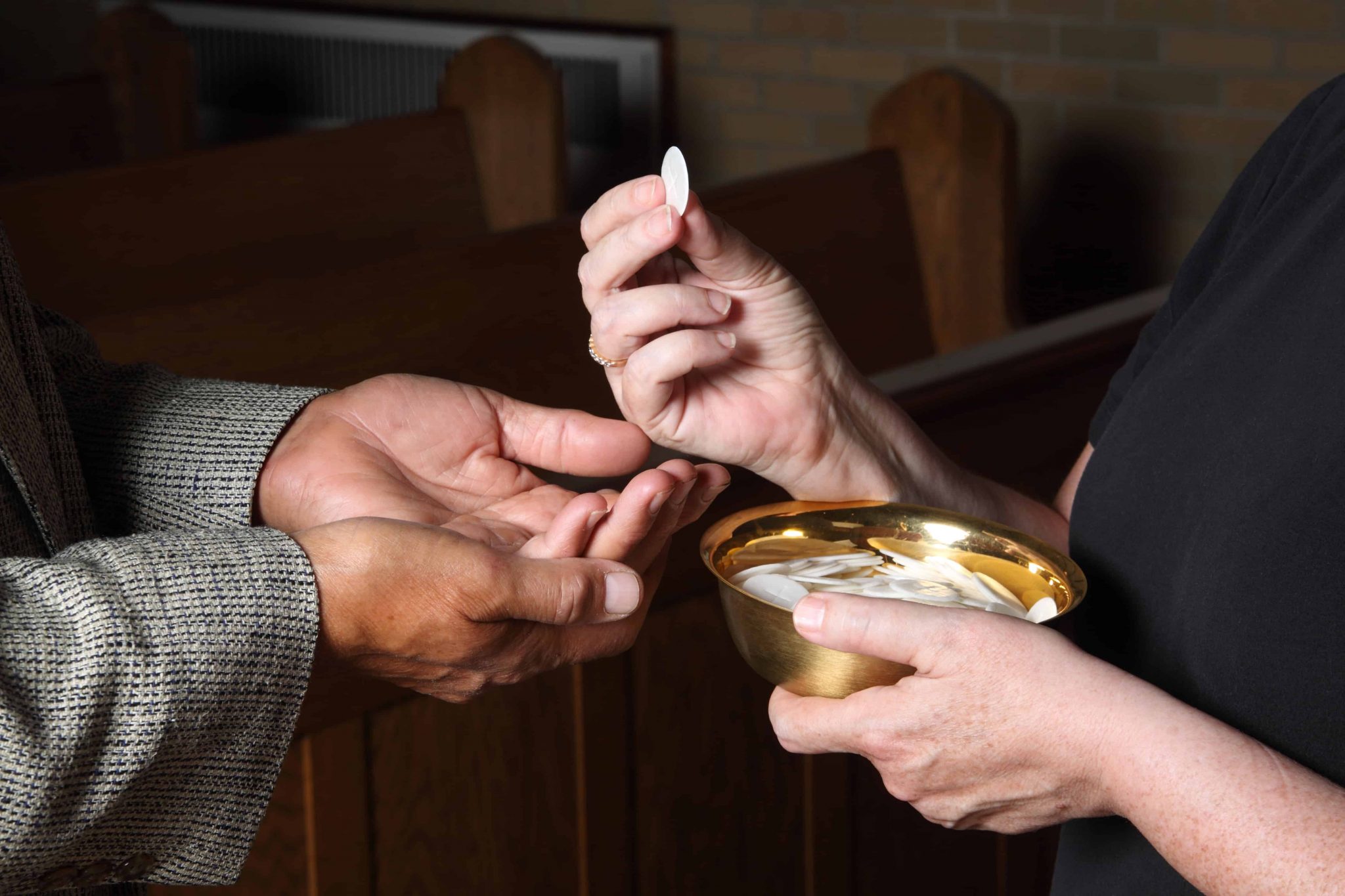
When training Extraordinary Ministers of Holy Communion (oftentimes referred to as EMs for short), there’s an old joke that any leader will tell the new ministers. It goes something along the lines of, “You may be an extraordinary person, but that’s not why you will be called an extraordinary minister.” The joke usually gets a chuckle, but points to a truth about being an Extraordinary Minister. While all of the EMs at St. Mary Immaculate are extraordinary people (we can personally vouch for them), the point is the title of Extraordinary Minister puts the emphasis on the circumstance of the minister, not the minster per se.
Ordinary Ministers
While there are Extraordinary Ministers, one must understand there are also Ordinary Ministers of Holy Communion. These are bishops, priests, and deacons, who have been ordained by God, to be the ordinary ministers. Back before the Second Vatican Council, the Ordinary Ministers were the only ones who could be in the sanctuary, let alone distribute Communion.
Since the council, the laity has the opportunity (when pastorally acceptable) to distribute Communion, as Extraordinary Ministers. Now, pastorally acceptable has a broad definition, but for the purposes of St. Mary Immaculate, we have Extraordinary Ministers of Holy Communion because the number of Mass-goers warrants it. Communion takes a long time as it is, even with the number of ministers we have from Mass to Mass.
When Do We Need Extraordinary Ministers?
But think about the purposes of having Extraordinary Ministers for other circumstances. The bishops tell us about these roles here, but there are extreme cases to need these ministers too. Certain parts of the world have an extremely small number of priests. Priests will often go to missionary lands to be able to cover large areas that the local priests can’t cover. They need help at Mass because like at St. Mary’s, Communion would take an extremely long time if left to one man. To be able to distribute Communion, they must delegate that to lay people.
And closer to home, the need to take Communion to the home bound is great. This includes taking Communion to the elderly in nursing homes and hospitals. While we have 3 priests on staff (a blessing for a parish our size), we need a large number of ministers who can take Communion to those who cannot attend Mass on Sunday due to illness or the inability to get to Mass. If we were to just have Ordinary Ministers, our priests would never sleep!
Why Extra?
So while it may appear Extraordinary Ministers are just extra, the Church sees the need in having faithful lay people assist in distributing Communion. We need Extraordinary Ministers who are not simply “there to help” or “feel special distributing Communion.” Rather, we need Extraordinary Ministers dedicated to the reverence of the Eucharist, and feel called to serve the needs of those who wish to receive the Eucharist. The focus must be on Christ, not the minister. Handling our Lord is an extreme privilege, and ministers need to take their role seriously. Because while they are not Ordinary Ministers, they are participating in a task that is extraordinary.
